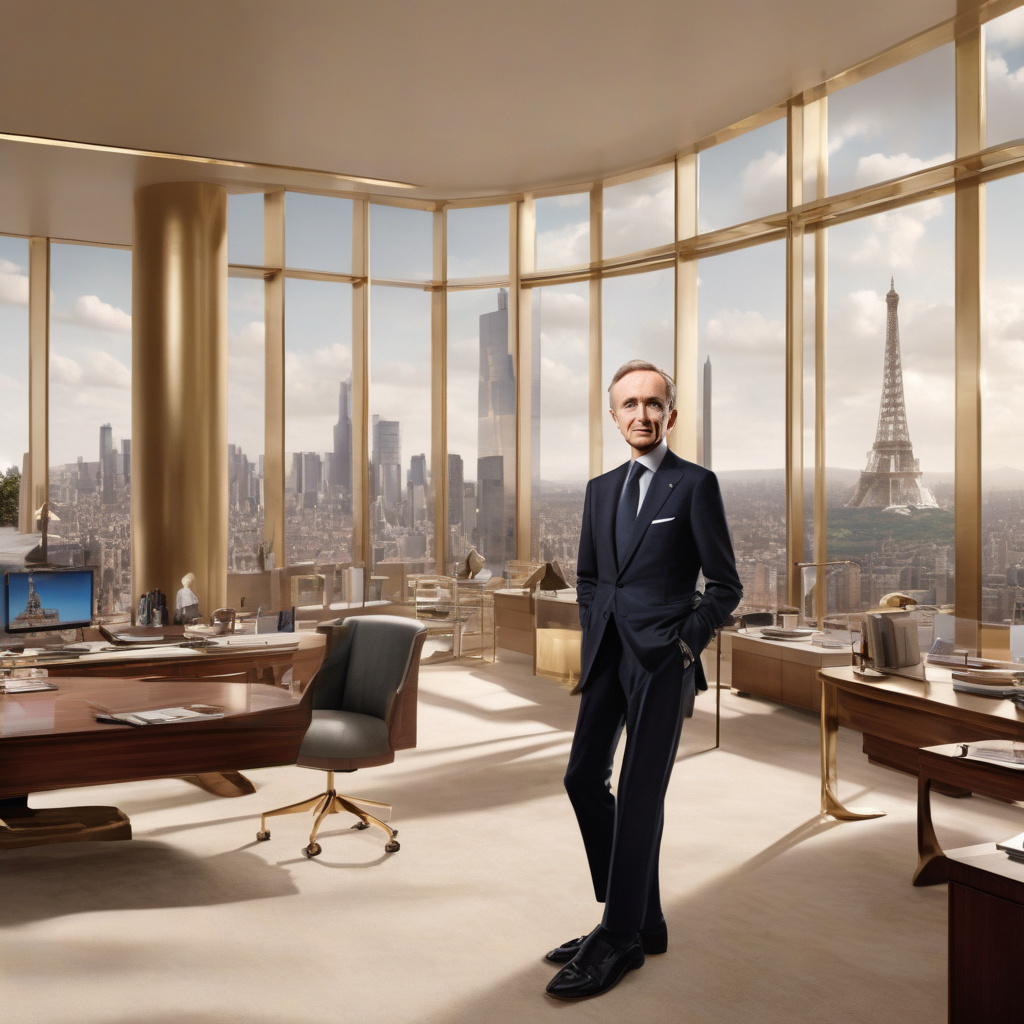Arnault Tightens His LVMH Control With $1.6 Billion Buying Spree
In a strategic move that underscores the unwavering ambition of Bernard Arnault, the billionaire CEO of LVMH Moët Hennessy Louis Vuitton, the Arnault family has undertaken a significant buying spree worth $1.6 billion. This aggressive acquisition strategy comes at a time when LVMH’s share price has faced a sharp decline, raising eyebrows in both the financial and luxury sectors. The implications of this buying blitz are profound, as it brings the Arnault family closer to owning half of the world’s largest luxury group.
LVMH, a conglomerate that boasts a portfolio of over 75 prestigious brands across fashion, cosmetics, and spirits, has been a pillar of the luxury market. However, the company has recently encountered turbulent waters, with its stock price experiencing a downturn that has rattled investors. Amidst this backdrop, Arnault’s decisive actions signal a strong vote of confidence in the long-term value of his luxury empire.
The buying spree involved the acquisition of additional shares in LVMH, which has enabled the Arnault family to increase their stake in the company. Prior to this move, they already held a substantial share, but the recent purchases have pushed them closer to the 50% ownership threshold. Achieving this level of control not only consolidates Arnault’s influence over the company but also enhances his family’s financial security amidst fluctuating market conditions.
The timing of the purchase raises critical questions about the future trajectory of LVMH. Investors and analysts are keenly observing how this increase in ownership might affect the company’s strategic decisions moving forward. With Arnault at the helm, known for his visionary leadership and keen market insight, it is likely that LVMH will continue to focus on innovation and expansion, even in the face of market challenges.
Arnault’s strategy is reminiscent of other high-profile acquisitions in the luxury sector, where consolidation often leads to increased market power. For instance, the acquisition of Tiffany & Co. in 2020 for $16 billion was a landmark move that not only expanded LVMH’s footprint in the jewelry sector but also demonstrated Arnault’s commitment to enhancing brand prestige and market share. Much like the Tiffany acquisition, the latest buying spree indicates that Arnault is not afraid to invest heavily, even in uncertain times, to secure a competitive advantage.
Moreover, this buying spree aligns with broader trends in the retail and luxury sectors, where brands are increasingly focusing on vertical integration and direct ownership. By tightening his grip on LVMH, Arnault is positioning the company to leverage synergies across its diverse brands, thereby maximizing efficiency and driving profitability. This strategic alignment can be pivotal in navigating the complexities of the global luxury market, which is characterized by shifting consumer preferences and economic fluctuations.
The luxury market has shown resilience, with high-net-worth consumers continuing to seek exclusive and personalized experiences. Arnault’s vision for LVMH has often revolved around appealing to this demographic, and with greater ownership, he can further tailor the company’s offerings to meet evolving consumer desires. The ongoing emphasis on sustainability, digital transformation, and experiential retail will likely be at the forefront of LVMH’s initiatives as it seeks to maintain its leadership status in the luxury space.
It is also worth noting that Arnault’s purchasing decision reflects a broader trend among executives who perceive current market conditions as an opportune moment to invest. As many companies grapple with the implications of economic uncertainty and shifting consumer behaviors, savvy leaders are recognizing that downturns can present unique opportunities for strategic acquisitions and increased market share.
In conclusion, Bernard Arnault’s $1.6 billion buying spree not only reaffirms his dedication to LVMH but also positions the Arnault family to potentially achieve significant control over the luxury giant. As the market continues to evolve, this increased ownership could have lasting implications for the company’s strategic direction and its ability to navigate the challenges ahead. Investors will undoubtedly be watching closely, as the Arnault family’s growing stake could be a harbinger of transformative changes within LVMH and the luxury sector at large.
luxury, LVMH, Arnault, businessstrategy, investment
